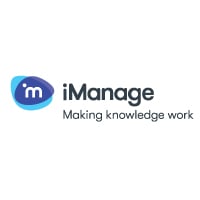
Chief director, legal office | Dentsu Corporate One






Yujin Nakano
Chief director, legal office | Dentsu Corporate One
What are the most significant cases, projects and/or transactions that you and/or your legal team have recently been involved in?
We recently faced a highly complex and unprecedented situation involving a serious management issue at an overseas investee company. The facts were extremely complicated and gaining a clear and complete understanding of the facts proved extremely challenging. With stakeholders spread across multiple jurisdictions and severe time constraints, we had to act swiftly and decisively.
In the face of rapidly changing circumstances, we worked in close coordination with our business teams, external law firms, and other key stakeholders. Together, we explored and debated every possible course of action, applying a combination of sharp legal insight and creative problem-solving. Thanks to the unwavering commitment and collaborative spirit of all parties involved, we were able to avert the worst-case scenario.
This experience reinforced the importance of not giving up on solutions — even those that may initially seem unlikely. Perseverance and an open mind can make all the difference in the most difficult of situations. It also reminded us of the critical importance of having a deep understanding of the legal and practical differences across jurisdictions when navigating complex, cross-border challenges.
How do you approach managing legal aspects during periods of instability or crisis to ensure the organisation’s resilience?
During periods of legal or regulatory turbulence, it is not uncommon for business units to lose confidence in their operations — sometimes becoming overly risk-averse. In such situations, the legal function must go beyond merely interpreting laws and regulations accurately.
We need to serve as both a stabilising and an enabling force within the organisation. We work to design clear, practical rules and frameworks that empower the business to move forward with confidence and integrity. At the same time, we support frontline teams by helping them understand the true nature and scale of the risks they face. Rather than offering overly conservative, standardised guidance that fails to reflect the unique context of each case, we actively engage with our internal clients to explore alternative solutions and workable paths forward.
Above all, we believe that being a trusted partner is essential — especially in times of uncertainty. By building credibility through consistent, reasoned advice and a deep understanding of the business, the legal team can help maintain organisational calm and resilience even in challenging moments.
Based on your experiences in the past year, are there any trends in the legal or business world that you are keeping an eye on that you think other in-house lawyers should be mindful of?
The rapid evolution of AI is a trend that cannot be ignored. Until recently, I believed that the use of generative AI in legal work would remain limited. However, the emergence of AI agents with advanced research capabilities is changing that perception. Some tools can now conduct complex legal research at a level that was previously unimaginable, and the pace of innovation is truly remarkable.
That said, the risks — such as hallucinations — still require close attention. In addition, issues such as data protection and responsible usage within a corporate environment must be carefully addressed before broader adoption. Nevertheless, I believe we are entering a time when legal professionals who can actively and responsibly leverage AI will be increasingly valuable to their organisations.
This shift also calls for a change in mindset. Legal professionals must be open to learning new technologies and adapting their skill sets to remain relevant in an AI-augmented environment. The ability to combine legal expertise with technological fluency will be key to shaping the future of the in-house legal function.
What factors influence your team’s decision to use external legal services versus handling matters in-house, and what criteria are used to evaluate their performance?
As a group corporate platform, we provide centralised legal support to our group companies, particularly in Japan. However, our legal team is relatively small, and we do not necessarily have the capacity to manage every matter internally. Therefore, when deciding whether to engage external counsel, we assess various factors on a case-by-case basis, including the scale and complexity of the matter, applicable jurisdiction, expected volume of work, potential for disputes, and the required working language.
While we do not have formal evaluating criteria, we evaluate law firms based on responsiveness, reliability, and the accuracy and clarity of their work product, both substantively and stylistically. External lawyers who go beyond simply citing statutory language or academic doctrine — those who demonstrate a deep understanding of our business and offer practical, well-reasoned alternatives aligned with our risk tolerance — are especially valued. We highly appreciate counsel who can provide forward-thinking solutions rather than conservative, boilerplate advice.